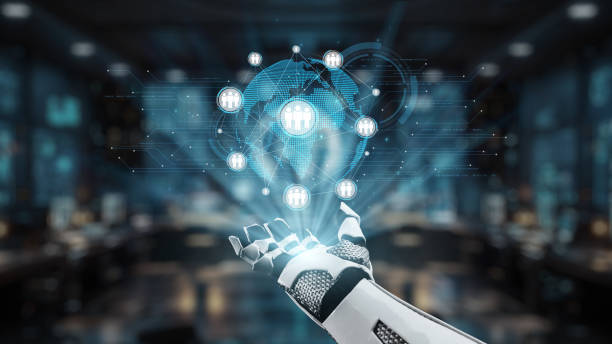Introduction
Space exploration has always been a testament to human ingenuity and ambition. From the Moon landing to Mars rovers, technological advancements have enabled us to push the boundaries of discovery. However, as missions become more complex and distances grow farther, artificial intelligence (AI) and robotics are playing an increasingly vital role in space exploration. AI-driven robots are helping scientists explore harsh environments, analyze vast amounts of data, and even assist astronauts on long-duration missions. The next frontier of space exploration will depend heavily on these intelligent machines.
How AI and Robotics Are Transforming Space Exploration
AI and robotics have revolutionized space missions by enhancing automation, efficiency, and safety. Here are some of the key areas where these technologies are making a difference:
1. Autonomous Spacecraft and Rovers
AI-driven spacecraft and planetary rovers have become essential for exploring the solar system.
- Mars Rovers: NASA’s Perseverance and Curiosity rovers use AI to navigate the Martian surface autonomously, avoiding obstacles and analyzing soil and rock compositions.
- Lunar Exploration: The VIPER (Volatiles Investigating Polar Exploration Rover) is set to explore the Moon’s South Pole, using AI to search for water ice that could support future human missions.
- Deep Space Probes: AI is helping spacecraft like Voyager 1 and 2 make real-time adjustments to their course, allowing them to explore interstellar space without human intervention.
2. AI in Mission Planning and Data Analysis
Space missions generate vast amounts of data that require intelligent processing. AI algorithms help scientists:
- Identify Exoplanets: AI-powered systems analyze data from telescopes like Kepler and James Webb Space Telescope (JWST) to detect Earth-like planets in distant galaxies.
- Predict Space Weather: AI helps forecast solar storms and radiation bursts that can affect satellites and astronauts.
- Optimize Mission Strategies: AI-driven simulations assist in designing efficient flight paths, landing sites, and fuel usage strategies.
3. Robotics in Space Stations and Astronaut Assistance
AI-powered robots are now being used aboard space stations to support astronauts:
- CIMON (Crew Interactive Mobile Companion): Developed by IBM and Airbus for the International Space Station (ISS), CIMON is an AI-powered assistant that helps astronauts with research and maintenance tasks.
- Robotic Arms: The Canadarm2 and Dextre, used on the ISS, perform maintenance and repairs, reducing the need for spacewalks.
- Autonomous Drones: NASA is developing robotic drones like Astrobee, which can navigate inside space stations, helping astronauts with inventory management and inspections.
4. AI in Space Mining and Colonization
As humanity prepares for long-term space missions and potential colonization, AI and robotics will play a crucial role:
- Mining Asteroids: AI-powered robots could extract valuable resources from asteroids, reducing reliance on Earth’s limited materials.
- Self-Sustaining Habitats: AI could help manage life-support systems in space colonies, optimizing air, water, and food supplies.
- Building Lunar and Martian Bases: Autonomous robots could construct habitats on the Moon and Mars before human arrival.
The Future of AI and Robotics in Space Exploration
AI and robotics are set to take space exploration to new heights. Here’s what the future may hold:
- AI-Powered Interstellar Missions: Future AI-driven probes may explore exoplanets beyond our solar system.
- Human-Robot Collaboration on Mars: Robots will likely assist astronauts in setting up and maintaining a Martian colony.
- AI-Driven Decision Making: Advanced AI systems may take over mission control, making split-second decisions in deep space where communication with Earth is delayed.
Conclusion
AI and robotics are transforming space exploration, making missions more autonomous, efficient, and safe. As we venture further into the cosmos, intelligent machines will play a crucial role in uncovering the mysteries of the universe. The next frontier of space exploration will not just be about human astronauts—it will be a collaboration between humans and AI-powered robots, working together to expand our understanding of the cosmos.

